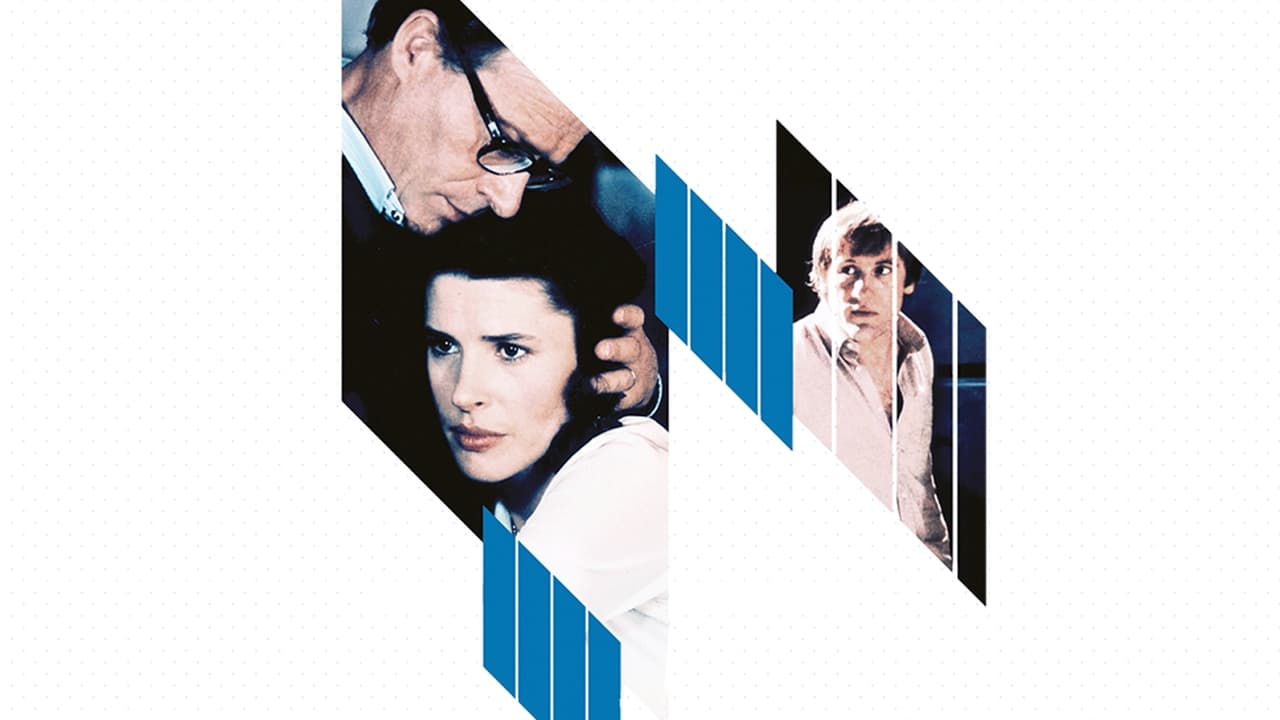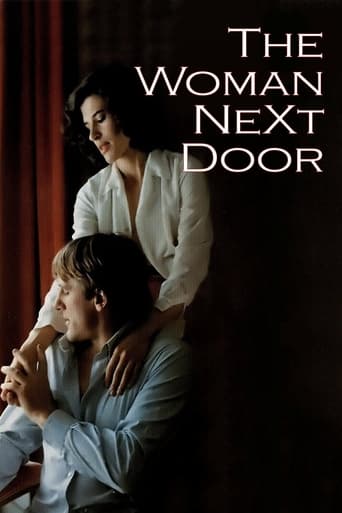

Nice effects though.
... View MoreExcellent, a Must See
... View MoreThis is a must-see and one of the best documentaries - and films - of this year.
... View MoreAmazing worth wacthing. So good. Biased but well made with many good points.
... View MoreLike Jules and Jim of nearly twenty years before, this movie presents us with a woman who is larger than life, who makes art out life, who is mesmerising, mystifying, irresistible, enigmatic--and a tremendous pain in the bum. Or so the verdict could rest if this femme were not literally fatale. Like a man who abandons every woman after getting her into bed, the heroine of both movies thrives on conquest and domination. But once she has won the man, then subdued him, she is bored and cannot enjoy what she has gained. Both women, equating happiness with emptiness (because it would reveal the emptiness within them?), would rather destroy than do nothing, even if it means destroying what they hold dear. The sense of power, the thrill they get from getting attention and from shocking people are what they thrive on. Revered as goddesses of love, they are really goddesses of death.I suppose this makes me sound like a drab, insensitive killjoy--and for a long time I wouldn't have expressed this opinion for fear of being thought so. But isn't it the obvious interpretation of the obvious facts? The favourable opinion of these women is based not on facts but on an immature dream (on the part of men who idolise such a woman and women who want to be like her), a dream of running wild, being utterly selfish, and never having to face any come-uppance. Above all, not having to deal with real life (ie, be boring). Can one imagine the husband in this movie, any more than the one in Jules and Jim, sitting down for a discussion with the wife about their budget, or complaining about her housekeeping?Obviously a fantasy so long maintained means a great deal to Truffaut, who was as infatuated with Ardant as he was with Moreau. But it is a shame that his film-making is so beautiful and so seductive, especially in the earlier film, that he presents so persuasively, to young filmgoers, the idea that capriciousness, exhibitionism, and what we have learned to call narcissism make women fascinating and desirable. Truffaut's fantasy is not one of being a lover but of being a fan, of worshiping a woman who is too far above him for understanding or intimacy. If your ideal woman is someone it is impossible to be close to or to affect, it rather draws attention away from the fact that you are not good at doing that with anybody. Just because the guy is French doesn't mean he knows all about love and passion and women. He seems more like someone concocting a big love-dream to justify his being a wimp.
... View MoreI really wanted to like this one more, it's the kind of domestic drama the French usually do well, but it just didn't work for me. Truffaut takes material grounded in realism and tries to impose a fable-like atmosphere, and ends up in an awkward middle ground. Just one example, he has Fanny Ardant faint at least twice in the movie. Really? Is this 1981 or 1921? I really didn't take to Ardant's performance, though I suspect the script shares the blame for that; she comes off less as a real person than a male construct.The story--Ardant and her husband move next door to Gerard Depardieu and his wife, the two having had an intense affair a decade earlier--is well told and holds interest, but the details are often unconvincing and there's an off-putting tone to the whole affair. For instance, Ardant and Depardieu act frantic about their secret right from the start--but why? Both were single when they were previously a couple, so there would be no scandal in being honest with their spouses, yet both insist on saying nothing. Later in the film, when the truth is exposed, and by this time the two have become adulterous lovers in the present, the respective spouses are maddeningly reasonable about the whole thing. Yeah yeah, they're French, but really, if betrayed spouses always reacted this mildly, people wouldn't feel the need to hide adultery in the first place.This vague inauthentic vibe persists right to the melodramatic ending, which also comes off as oddly emotionally flat.
... View MoreDespite its distinguished provenance, and despite the presence of the stunning Fanny Ardant, this is pure soap. It even has a local busybody chattering background on the characters, a tested U.S. soap-opera technique. Gerard Depardieu is wooden and unconvincing as Ardant's lover. The rest of the cast (except for Ardant) is adequate at best. I don't think Truffault ever made a worse movie. It does exhibit his economy of expression and beautiful style, but nothing can save it from its own sentimentality and simple-mindedness. I don't believe this turkey has ever been in general release in the U.S., which should soften the hearts of even the most savage haters of the French. They did us the favor of keeping this one mostly to themselves.
... View MoreAn outstanding love story, with an astonishing, riveting performance from Fanny Ardant. My own love affair with Truffaut began as a teenager when I first saw "Jules and Jim." But "La femme d'a cote" moved me most directly and most powerfully of all his great work. Is love "toujours triste"? No, not always sad; now that I'm in my forties, I'm much less a romantic. And love may be of many varieties. But deep romantic love, I do believe, rarely appears on screen as honestly portrayed as here. "The Woman Next Door" presents us with the power, the physical impact of love, the way it "takes our breath" away and so much more. Truffaut so often focuses on love, and usually more positively and in a greater variety of ways than other great directors. But if you want funny, fresh young love, see Truffaut's "Soft Skin" or even "Don't Shoot the Piano Player. His films which are more about infatuation versus love, i.e., the original (Truffaut's film, not the American one with Bert Reynolds) "The Man Who Loved Women" or even the Hitchcock tribute "The Bride Wore Black" while "darker" in tone -- all these remain quite funny, generally light in tone, and quite lively in pace and style. In "The Woman Next Door," more tragic, melancholic moments appear -- it's more akin to the highly autobiographical "The 400 Blows," which tells of Truffaut's difficult adolescence. Yet it has its lighter moments, too. My own response was a strong interest in the drama, the suspense, and astonishment at the beauty of the story, the acting, and the many moments of cinematic genius. Truffaut did, personally, fall in love with Ardant, the lead actress here; they married, so just how much autobiography went into this tale and film -- I don't know. "Next Door" represents Truffaut in a mature phase of his life and career, one which shot off like a rocket and just kept climbing. Ardant went on to act well in many other films, even in several after Truffaut's death. In her starring role here, she made her debut to my acquaintance. She stunned me; I thought I knew Truffaut's work well enough -- after ten to twelve years of trying to see everything available by him, reading about him, and so forth. Yet this film knocked me out, all the same. Superb.
... View More